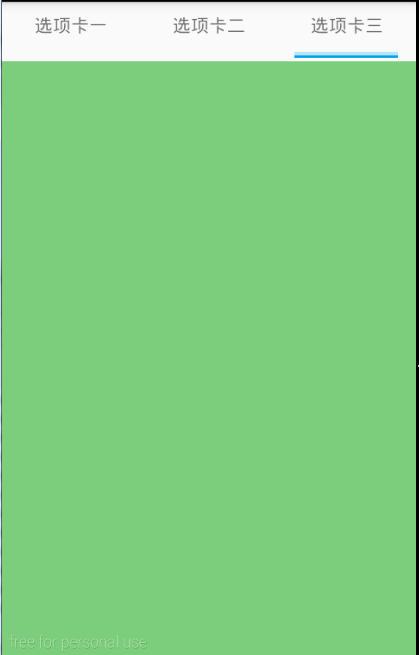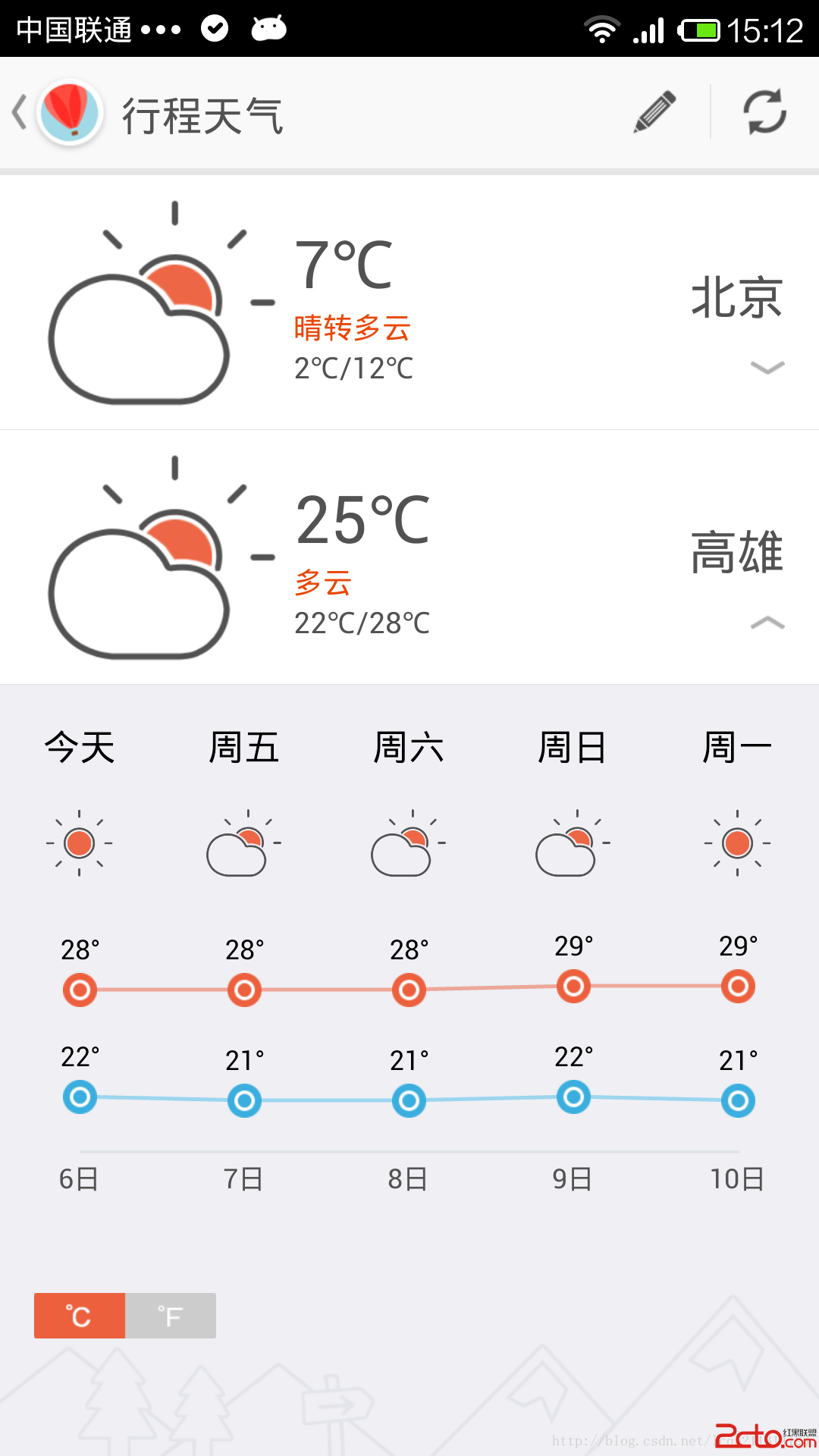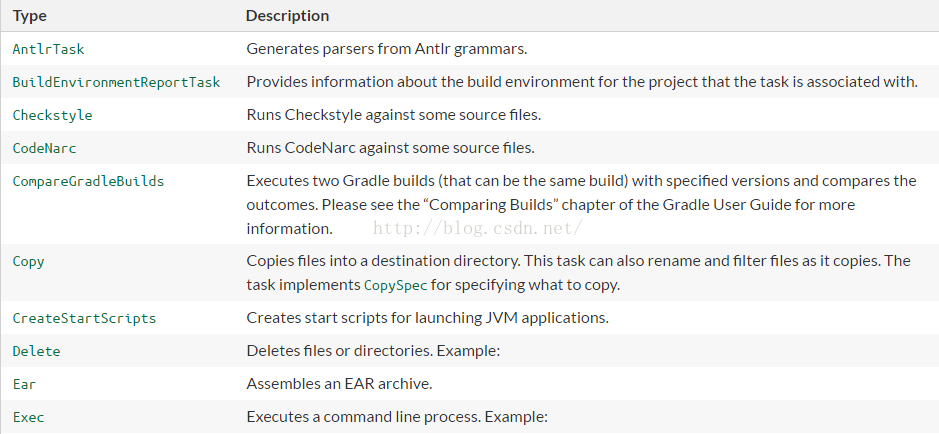編輯:關於Android編程
最近公司在做一個時間選者器,涉及到日歷裝換,單個選擇器到是沒什麼,但是又有農歷裝換就比較頭疼了,下面分享一個日歷轉換器的代碼,公歷轉農歷的網上很多了,但是農歷轉公歷德就比較少了,
直接上代碼:
package com.openbook.mars.utils;
/**
* 該類主要做農歷和公歷的互轉 支持1900到2050年
* System.out.println(日歷測試);
System.out.println(ChineseCalendarTwo.sCalendarLundarToSolar(2015, 9, 2)); 農轉工
System.out.println(ChineseCalendarTwo.sCalendarSolarToLundar(2015, 9, 2)); 工轉農
*
*/
public class ChineseCalendarTwo {
// Array lIntLunarDay is stored in the monthly day information in every year from 1901 to 2100 of the lunar calendar,
// The lunar calendar can only be 29 or 30 days every month, express with 12(or 13) pieces of binary bit in one year,
// it is 30 days for 1 form in the corresponding location , otherwise it is 29 days
public static final int[] iLunarMonthDaysTable = { 0x4ae0, 0xa570, 0x5268, 0xd260, 0xd950, 0x6aa8, 0x56a0, 0x9ad0, 0x4ae8,
0x4ae0, // 1910
0xa4d8, 0xa4d0, 0xd250, 0xd548, 0xb550, 0x56a0, 0x96d0, 0x95b0, 0x49b8, 0x49b0, // 1920
0xa4b0, 0xb258, 0x6a50, 0x6d40, 0xada8, 0x2b60, 0x9570, 0x4978, 0x4970, 0x64b0, // 1930
0xd4a0, 0xea50, 0x6d48, 0x5ad0, 0x2b60, 0x9370, 0x92e0, 0xc968, 0xc950, 0xd4a0, // 1940
0xda50, 0xb550, 0x56a0, 0xaad8, 0x25d0, 0x92d0, 0xc958, 0xa950, 0xb4a8, 0x6ca0, // 1950
0xb550, 0x55a8, 0x4da0, 0xa5b0, 0x52b8, 0x52b0, 0xa950, 0xe950, 0x6aa0, 0xad50, // 1960
0xab50, 0x4b60, 0xa570, 0xa570, 0x5260, 0xe930, 0xd950, 0x5aa8, 0x56a0, 0x96d0, // 1970
0x4ae8, 0x4ad0, 0xa4d0, 0xd268, 0xd250, 0xd528, 0xb540, 0xb6a0, 0x96d0, 0x95b0, // 1980
0x49b0, 0xa4b8, 0xa4b0, 0xb258, 0x6a50, 0x6d40, 0xada0, 0xab60, 0x9370, 0x4978, // 1990
0x4970, 0x64b0, 0x6a50, 0xea50, 0x6b28, 0x5ac0, 0xab60, 0x9368, 0x92e0, 0xc960, // 2000
0xd4a8, 0xd4a0, 0xda50, 0x5aa8, 0x56a0, 0xaad8, 0x25d0, 0x92d0, 0xc958, 0xa950, // 2010
0xb4a0, 0xb550, 0xb550, 0x55a8, 0x4ba0, 0xa5b0, 0x52b8, 0x52b0, 0xa930, 0x74a8, // 2020
0x6aa0, 0xad50, 0x4da8, 0x4b60, 0x9570, 0xa4e0, 0xd260, 0xe930, 0xd530, 0x5aa0, // 2030
0x6b50, 0x96d0, 0x4ae8, 0x4ad0, 0xa4d0, 0xd258, 0xd250, 0xd520, 0xdaa0, 0xb5a0, // 2040
0x56d0, 0x4ad8, 0x49b0, 0xa4b8, 0xa4b0, 0xaa50, 0xb528, 0x6d20, 0xada0, 0x55b0 // 2050
};
// Array iLunarLeapMonthTable preserves the lunar calendar leap month from 1901 to 2050,
// if it is 0 express not to have , every byte was stored for two years
public static final char[] iLunarLeapMonthTable = { 0x00, 0x50, 0x04, 0x00, 0x20, // 1910
0x60, 0x05, 0x00, 0x20, 0x70, // 1920
0x05, 0x00, 0x40, 0x02, 0x06, // 1930
0x00, 0x50, 0x03, 0x07, 0x00, // 1940
0x60, 0x04, 0x00, 0x20, 0x70, // 1950
0x05, 0x00, 0x30, 0x80, 0x06, // 1960
0x00, 0x40, 0x03, 0x07, 0x00, // 1970
0x50, 0x04, 0x08, 0x00, 0x60, // 1980
0x04, 0x0a, 0x00, 0x60, 0x05, // 1990
0x00, 0x30, 0x80, 0x05, 0x00, // 2000
0x40, 0x02, 0x07, 0x00, 0x50, // 2010
0x04, 0x09, 0x00, 0x60, 0x04, // 2020
0x00, 0x20, 0x60, 0x05, 0x00, // 2030
0x30, 0xb0, 0x06, 0x00, 0x50, // 2040
0x02, 0x07, 0x00, 0x50, 0x03 // 2050
};
// Array iSolarLunarTable stored the offset days
// in New Year of solar calendar and lunar calendar from 1901 to 2050;
private static final char[] iSolarLunarOffsetTable = { 49, 38, 28, 46, 34, 24, 43, 32, 21, 40, // 1910
29, 48, 36, 25, 44, 34, 22, 41, 31, 50, // 1920
38, 27, 46, 35, 23, 43, 32, 22, 40, 29, // 1930
47, 36, 25, 44, 34, 23, 41, 30, 49, 38, // 1940
26, 45, 35, 24, 43, 32, 21, 40, 28, 47, // 1950
36, 26, 44, 33, 23, 42, 30, 48, 38, 27, // 1960
45, 35, 24, 43, 32, 20, 39, 29, 47, 36, // 1970
26, 45, 33, 22, 41, 30, 48, 37, 27, 46, // 1980
35, 24, 43, 32, 50, 39, 28, 47, 36, 26, // 1990
45, 34, 22, 40, 30, 49, 37, 27, 46, 35, // 2000
23, 42, 31, 21, 39, 28, 48, 37, 25, 44, // 2010
33, 23, 41, 31, 50, 39, 28, 47, 35, 24, // 2020
42, 30, 21, 40, 28, 47, 36, 25, 43, 33, // 2030
22, 41, 30, 49, 37, 26, 44, 33, 23, 42, // 2040
31, 21, 40, 29, 47, 36, 25, 44, 32, 22, // 2050
};
static boolean bIsSolarLeapYear(int iYear) {
return ((iYear % 4 == 0) && (iYear % 100 != 0) || iYear % 400 == 0);
}
// 在陽歷的日子
static int iGetSYearMonthDays(int iYear, int iMonth) {
if ((iMonth == 1) || (iMonth == 3) || (iMonth == 5) || (iMonth == 7) || (iMonth == 8) || (iMonth == 10) || (iMonth == 12))
return 31;
else if ((iMonth == 4) || (iMonth == 6) || (iMonth == 9) || (iMonth == 11))
return 30;
else if (iMonth == 2) {
if (bIsSolarLeapYear(iYear))
return 29;
else
return 28;
} else
return 0;
}
//抵消天新年,指出在陽歷的日子
static int iGetSNewYearOffsetDays(int iYear, int iMonth, int iDay) {
int iOffsetDays = 0;
for (int i = 1; i < iMonth; i++) {
iOffsetDays += iGetSYearMonthDays(iYear, i);
}
iOffsetDays += iDay - 1;
return iOffsetDays;
}
static int iGetLLeapMonth(int iYear) {
char iMonth = iLunarLeapMonthTable[(iYear - 1901) / 2];
if (iYear % 2 == 0)
return (iMonth & 0x0f);
else
return (iMonth & 0xf0) >> 4;
}
static int iGetLMonthDays(int iYear, int iMonth) {
int iLeapMonth = iGetLLeapMonth(iYear);
if ((iMonth > 12) && (iMonth - 12 != iLeapMonth) || (iMonth < 0)) {
System.out.println(Wrong month, ^_^ , i think you are want a -1, go to death!);
return -1;
}
if (iMonth - 12 == iLeapMonth) {
if ((iLunarMonthDaysTable[iYear - 1901] & (0x8000 >> iLeapMonth)) == 0)
return 29;
else
return 30;
}
if ((iLeapMonth > 0) && (iMonth > iLeapMonth))
iMonth++;
if ((iLunarMonthDaysTable[iYear - 1901] & (0x8000 >> (iMonth - 1))) == 0)
return 29;
else
return 30;
}
// 天在今年的陰歷
static int iGetLYearDays(int iYear) {
int iYearDays = 0;
int iLeapMonth = iGetLLeapMonth(iYear);
for (int i = 1; i < 13; i++)
iYearDays += iGetLMonthDays(iYear, i);
if (iLeapMonth > 0)
iYearDays += iGetLMonthDays(iYear, iLeapMonth + 12);
return iYearDays;
}
static int iGetLNewYearOffsetDays(int iYear, int iMonth, int iDay) {
int iOffsetDays = 0;
int iLeapMonth = iGetLLeapMonth(iYear);
if ((iLeapMonth > 0) && (iLeapMonth == iMonth - 12)) {
iMonth = iLeapMonth;
iOffsetDays += iGetLMonthDays(iYear, iMonth);
}
for (int i = 1; i < iMonth; i++) {
iOffsetDays += iGetLMonthDays(iYear, i);
if (i == iLeapMonth)
iOffsetDays += iGetLMonthDays(iYear, iLeapMonth + 12);
}
iOffsetDays += iDay - 1;
return iOffsetDays;
}
/** 陽歷變成了陰歷
* @param iYear
* @param iMonth
* @param iDay
* @return
*/
public static String sCalendarSolarToLundar(int iYear, int iMonth, int iDay) {
int iLDay, iLMonth, iLYear;
int iOffsetDays = iGetSNewYearOffsetDays(iYear, iMonth, iDay-1);
int iLeapMonth = iGetLLeapMonth(iYear);
if (iOffsetDays < iSolarLunarOffsetTable[iYear - 1901]) {
iLYear = iYear - 1;
iOffsetDays = iSolarLunarOffsetTable[iYear - 1901] - iOffsetDays;
iLDay = iOffsetDays;
for (iLMonth = 12; iOffsetDays > iGetLMonthDays(iLYear, iLMonth); iLMonth--) {
iLDay = iOffsetDays;
iOffsetDays -= iGetLMonthDays(iLYear, iLMonth);
}
if (0 == iLDay)
iLDay = 1;
else
iLDay = iGetLMonthDays(iLYear, iLMonth) - iOffsetDays + 1;
} else {
iLYear = iYear;
iOffsetDays -= iSolarLunarOffsetTable[iYear - 1901];
iLDay = iOffsetDays + 1;
for (iLMonth = 1; iOffsetDays >= 0; iLMonth++) {
iLDay = iOffsetDays + 1;
iOffsetDays -= iGetLMonthDays(iLYear, iLMonth);
if ((iLeapMonth == iLMonth) && (iOffsetDays > 0)) {
iLDay = iOffsetDays;
iOffsetDays -= iGetLMonthDays(iLYear, iLMonth + 12);
if (iOffsetDays <= 0) {
iLMonth += 12 + 1;
break;
}
}
}
iLMonth--;
}
return + iLYear + (iLMonth > 9 ? + iLMonth : 0 + iLMonth) + (iLDay > 9 ? + iLDay : 0 + iLDay);
}
/**農歷是變成陽歷
* @param iYear
* @param iMonth
* @param iDay
* @return
*/
public static String sCalendarLundarToSolar(int iYear, int iMonth, int iDay) {
int iSYear, iSMonth, iSDay;
int iOffsetDays = iGetLNewYearOffsetDays(iYear, iMonth, iDay+1) + iSolarLunarOffsetTable[iYear - 1901];
int iYearDays = bIsSolarLeapYear(iYear) ? 366 : 365;
if (iOffsetDays >= iYearDays) {
iSYear = iYear + 1;
iOffsetDays -= iYearDays;
} else {
iSYear = iYear;
}
iSDay = iOffsetDays + 1;
for (iSMonth = 1; iOffsetDays >= 0; iSMonth++) {
iSDay = iOffsetDays + 1;
iOffsetDays -= iGetSYearMonthDays(iSYear, iSMonth);
}
iSMonth--;
return + iSYear + (iSMonth > 9 ? iSMonth + : 0 + iSMonth) + (iSDay > 9 ? iSDay + : 0 + iSDay);
}
}
// 自定義星期類
class Week {
int iWeek;
private String sWeek[] = { Sunday, Monday, Tuesday, Wednesday, Thursday, Friday, Saturday };
public Week() {
iWeek = 0;
}
public Week(int w) {
if ((w > 6) || (w < 0)) {
System.out.println(Week out of range, I think you want Sunday);
this.iWeek = 0;
} else
this.iWeek = w;
}
public String toString() {
return sWeek[iWeek];
}
}
// 自定義日期類
class MyDate {
public int iYear;
public int iMonth;
public int iDay;
private static int checkYear(int iYear) {
if ((iYear > 1901) && (iYear < 2050))
return iYear;
else {
System.out.println(The Year out of range, I think you want 1981);
return 1981;
}
}
public MyDate(int iYear, int iMonth, int iDay) {
this.iYear = checkYear(iYear);
this.iMonth = iMonth;
this.iDay = iDay;
}
public MyDate(int iYear, int iMonth) {
this.iYear = checkYear(iYear);
this.iMonth = iMonth;
this.iDay = 1;
}
public MyDate(int iYear) {
this.iYear = checkYear(iYear);
this.iMonth = 1;
this.iDay = 1;
}
public MyDate() {
this.iYear = 1981;
this.iMonth = 1;
this.iDay = 1;
}
public String toString() {
return + this.iYear + (this.iMonth > 9 ? + this.iMonth : 0 + this.iMonth)
+ (this.iDay > 9 ? + this.iDay : 0 + this.iDay);
}
public boolean equals(MyDate md) {
return ((md.iDay == this.iDay) && (md.iMonth == this.iMonth) && (md.iYear == this.iYear));
}
}
// 陽歷日期類,繼承自定義日期
class SolarDate extends MyDate {
private static int checkMonth(int iMonth) {
if (iMonth > 12) {
System.out.println(Month out of range, I think you want 12 );
return 12;
} else if (iMonth < 1) {
System.out.println(Month out of range, I think you want 1 );
return 1;
} else
return iMonth;
}
private static int checkDay(int iYear, int iMonth, int iDay) {
int iMonthDays = ChineseCalendarTwo.iGetSYearMonthDays(iYear, iMonth);
if (iDay > iMonthDays) {
System.out.println(Day out of range, I think you want + iMonthDays + );
return iMonthDays;
} else if (iDay < 1) {
System.out.println(Day out of range, I think you want 1 );
return 1;
} else
return iDay;
}
public SolarDate(int iYear, int iMonth, int iDay) {
super(iYear);
this.iMonth = checkMonth(iMonth);
this.iDay = checkDay(this.iYear, this.iMonth, iDay);
}
public SolarDate(int iYear, int iMonth) {
super(iYear);
this.iMonth = checkMonth(iMonth);
}
public SolarDate(int iYear) {
super(iYear);
}
public SolarDate() {
super();
}
public String toString() {
return + this.iYear + (this.iMonth > 9 ? - + this.iMonth : -0 + this.iMonth)
+ (this.iDay > 9 ? - + this.iDay : -0 + this.iDay);
}
public Week toWeek() {
int iOffsetDays = 0;
for (int i = 1901; i < iYear; i++) {
if (ChineseCalendarTwo.bIsSolarLeapYear(i))
iOffsetDays += 366;
else
iOffsetDays += 365;
}
iOffsetDays += ChineseCalendarTwo.iGetSNewYearOffsetDays(iYear, iMonth, iDay);
return new Week((iOffsetDays + 2) % 7);
}
public LunarDate toLunarDate() {
int iYear, iMonth, iDay, iDate;
LunarDate ld;
iDate = Integer.parseInt(ChineseCalendarTwo.sCalendarSolarToLundar(this.iYear, this.iMonth, this.iDay));
iYear = iDate / 10000;
iMonth = iDate % 10000 / 100;
iDay = iDate % 100;
ld = new LunarDate(iYear, iMonth, iDay);
return ld;
}
}
// 陰歷日期類,繼承自定義日期類
class LunarDate extends MyDate {
private String sChineseNum[] = { 零, 一, 二, 三, 四, 五, 六, 七, 八, 九, 十 };
private static int checkMonth(int iYear, int iMonth) {
if ((iMonth > 12) && (iMonth == ChineseCalendarTwo.iGetLLeapMonth(iYear) + 12)) {
return iMonth;
} else if (iMonth > 12) {
System.out.println(Month out of range, I think you want 12 );
return 12;
} else if (iMonth < 1) {
System.out.println(Month out of range, I think you want 1 );
return 1;
} else
return iMonth;
}
private static int checkDay(int iYear, int iMonth, int iDay) {
int iMonthDays = ChineseCalendarTwo.iGetLMonthDays(iYear, iMonth);
if (iDay > iMonthDays) {
System.out.println(Day out of range, I think you want + iMonthDays + );
return iMonthDays;
} else if (iDay < 1) {
System.out.println(Day out of range, I think you want 1 );
return 1;
} else
return iDay;
}
public LunarDate(int iYear, int iMonth, int iDay) {
super(iYear);
this.iMonth = checkMonth(this.iYear, iMonth);
this.iDay = checkDay(this.iYear, this.iMonth, iDay);
}
public LunarDate(int iYear, int iMonth) {
super(iYear);
this.iMonth = checkMonth(this.iYear, iMonth);
}
public LunarDate(int iYear) {
super(iYear);
}
public LunarDate() {
super();
}
public String toString() {
String sCalendar = 農歷;
sCalendar += sChineseNum[iYear / 1000] + sChineseNum[iYear % 1000 / 100] + sChineseNum[iYear % 100 / 10]
+ sChineseNum[iYear % 10] + ( + toChineseEra() + )年;
if (iMonth > 12) {
iMonth -= 12;
sCalendar += 閏;
}
if (iMonth == 12)
sCalendar += 臘月;
else if (iMonth == 11)
sCalendar += 冬月;
else if (iMonth == 1)
sCalendar += 正月;
else
sCalendar += sChineseNum[iMonth] + 月;
if (iDay > 29)
sCalendar += 三十;
else if (iDay > 20)
sCalendar += 二十 + sChineseNum[iDay % 20];
else if (iDay == 20)
sCalendar += 二十;
else if (iDay > 10)
sCalendar += 十 + sChineseNum[iDay % 10];
else
sCalendar += 初 + sChineseNum[iDay];
return sCalendar;
}
public CnWeek toWeek() {
int iOffsetDays = 0;
for (int i = 1901; i < iYear; i++)
iOffsetDays += ChineseCalendarTwo.iGetLYearDays(i);
iOffsetDays += ChineseCalendarTwo.iGetLNewYearOffsetDays(iYear, iMonth, iDay);
return new CnWeek((iOffsetDays + 2) % 7);
}
public ChineseEra toChineseEra() {
return new ChineseEra(iYear);
}
public SolarDate toSolarDate() {
int iYear, iMonth, iDay, iDate;
SolarDate sd;
iDate = Integer.parseInt(ChineseCalendarTwo.sCalendarLundarToSolar(this.iYear, this.iMonth, this.iDay));
iYear = iDate / 10000;
iMonth = iDate % 10000 / 100;
iDay = iDate % 100;
sd = new SolarDate(iYear, iMonth, iDay);
return sd;
}
}
class CnWeek extends Week {
private String sCnWeek[] = { 日, 一, 二, 三, 四, 五, 六 };
public CnWeek() {
super();
}
public CnWeek(int iWeek) {
super(iWeek);
}
public String toString() {
return 星期 + sCnWeek[this.iWeek];
}
}
class ChineseEra {
int iYear;
String[] sHeavenlyStems = { 甲, 乙, 丙, 丁, 戊, 己, 庚, 辛, 壬, 癸 };
String[] sEarthlyBranches = { 子, 丑, 寅, 卯, 辰, 巳, 午, 未, 申, 酉, 戌, 亥 };
public ChineseEra() {
int iYear = 1981;
}
public ChineseEra(int iYear) {
if ((iYear < 2050) && (iYear > 1901))
this.iYear = iYear;
else
this.iYear = 1981;
}
public String toString() {
int temp;
temp = Math.abs(iYear - 1924);
return sHeavenlyStems[temp % 10] + sEarthlyBranches[temp % 12];
}
}
把整個時間選擇器做完了,在全部分享出來
 Android手機衛士之設置密碼對話框
Android手機衛士之設置密碼對話框
本文實現初次設置密碼驗證過程,首先實現如下效果布局如下:<?xml version=1.0 encoding=utf-8?><Linea
 Android Tab -- 使用ViewPager、Fragment、FragmentPagerAdapter來實現
Android Tab -- 使用ViewPager、Fragment、FragmentPagerAdapter來實現
效果:滑動切換;點擊標簽切換。 代碼:https://github.com/ldb-github/Layout_Tab1、布局:使用LinearLayout布置
 android自定義趨勢圖
android自定義趨勢圖
之前項目需求裡有一個需求是要根據每周的天氣溫度去繪制一個趨勢圖,這個圖不基於XY坐標,就是一個單純的趨勢圖,百度後看了一些博客,大體上有了一些思路,下面是整個趨勢圖的效果
 理解與配置android studio中的gradle
理解與配置android studio中的gradle
使用gradle構建android應用時,你總是需要這樣一個文件:build.gradle。你應該已經看過這個文件了,如果沒有看過的話,你現在就可以看一下,它沒有多少內容
 【Android 仿微信通訊錄 導航分組列表-上】使用ItemDecoration為RecyclerView打造帶懸停頭部的分組列表
【Android 仿微信通訊錄 導航分組列表-上】使用ItemDecoration為RecyclerView打造帶懸停頭部的分組列表
一 概述本文是Android導航分組列表系列上,因時間和篇幅原因分上下,